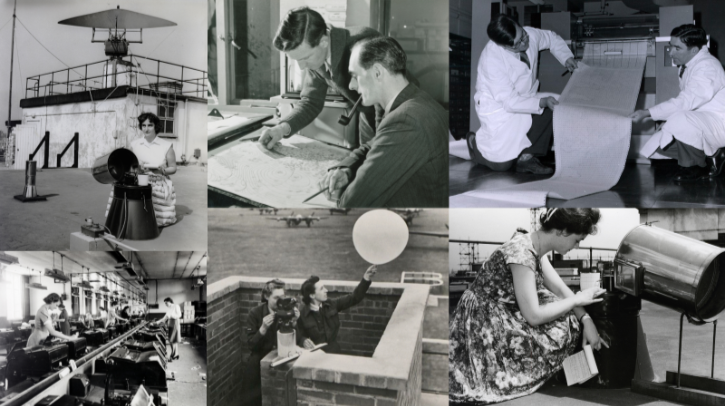On August 1, 2024, the UK Met Office celebrated its 170th birthday.
The forecasting and research center gathers around 200 billion weather observations a day, generating in the region of 3,000 forecasts from its advanced atmospheric model and a supercomputer that can perform 14,000 trillion calculations per second.
The Met Office’s origins
On August 1, 1854, Vice Admiral Robert FitzRoy was appointed by the Board of Trade to lead the fledgling Meteorological Office, the purpose of which was to understand more about the nature of the weather in the oceans, particularly the Atlantic Ocean, in order to protect life and property at sea.
FitzRoy believed it was possible to save lives at sea by understanding weather patterns. In 1859, a violent storm wrecked the ship Royal Charter and many others, costing the lives of hundreds of people. FitzRoy believed this kind of event could be forecast in advance – giving people the necessary time to prepare. This belief led to the launch of a national storm warning system and the first public weather forecast on July 31, 1861, which appeared in The Times newspaper.
Impact
Since then, the Met Office has helped the UK government, businesses, emergency responders, the public and many others to make informed decisions. The organization is also responsible for the UK’s National Severe Weather Warnings. On an extreme weather day, its public website and mobile apps see around 20.6 million page views and 2.1TB of data downloaded. The Met Office’s forecasting has supported British and allied defense operations worldwide for more than 100 years. From its D-Day landings forecast to the Mobile Met Unit today, which continues to support the armed forces wherever they are in the world.
Science and research
The organization is also advancing its understanding of the changing climate through research that underpins services for UK resilience, supporting communities, industry and government to better prepare for future climate risk.
Through the work of the Hadley Centre Climate Programme and the UK Climate Projections analysis tool, the Met Office provides authoritative scientific advice on climate to the UK government and customers. It employs more than 500 scientists, who have had over 6,000 peer-reviewed papers published since 1981.
The Met Office has contributed to all six IPCC Assessment Reports. Through the organization’s consultancy services, its experts give crucial advice and support that leads to effective action being taken when it matters. Looking further ahead, its investment in data science, machine learning (ML) and artificial intelligence (AI) is expected to help the Met Office meet the challenges of the future.
In related news, the National Oceanography Centre recently began providing underwater glider data for the UK Met Office. Click here to read the full story.



